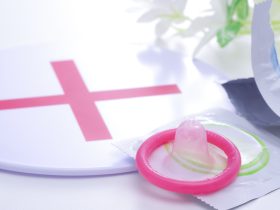In a world where sexual health is increasingly discussed openly, the market for libido supplements has grown significantly. People are seeking natural ways to enhance their sexual experiences, and these supplements promise just that. However, the efficacy of such products is a subject of debate within both the medical and consumer communities.
Some people with low libido, trouble achieving and maintaining an erection, or other forms of sexual dysfunction turn to herbal therapies, which have a long history of successful treatment. However, you should be aware of the limitations and risks of any supplements you take that claim to increase your sexual desire before you begin using them.
According to Ikhlas Khan, Ph.D., director of the University of Mississippi’s National Center for Natural Products Research, several herbs are sold as sex enhancers despite having very little data to support such claims. In April 2020, the Journal of Ethnopharmacology released an article on which Dr. Khan collaborated, an evaluation of supplements marketed for women’s sexuality. The analysis found no high-quality research demonstrating their efficacy for increasing libido in women. His statement, “There are so many more questions than answers,” is spot-on.
Consult your doctor before using any herbs, especially if you are already using any prescription drugs. There have been cases of supplement interactions with conventional medicines.
Orgasm problems, erectile dysfunction, vaginal pain, poor libido, and other forms of sexual dysfunction are best discussed with a doctor or sex therapist. Possible remedies exist that have a longer track record of success than what may be found at a vitamin store.
Understanding libido supplements
Libido supplements, also known as aphrodisiacs, claim to address various aspects of sexual health. They often contain a mix of herbs, vitamins, minerals, and other natural ingredients that are believed to positively influence libido and sexual performance.
Common ingredients in libido supplements
Many libido supplements include ingredients like maca root, horny goat weed, ginseng, Tribulus terrestris, and fenugreek. These substances are thought to impact hormone levels, blood flow, and overall energy, all of which can contribute to a better sexual life.
How effective are libido boosters?
L-arginine
L-arginine, a semi-essential amino acid the body can make on its own, is said to aid in the treatment of erectile dysfunction (ED) because it relaxes and widens blood vessels. Additional research is needed, however, and a review published in the journal Pharmacy in 2021 suggests that L-arginine combined with supplements like Lady Prelox may benefit women with sexual dysfunction.
MedlinePlus has recommended taking 2.5 to 5 grams (g) of L-arginine orally daily in order to “possibly” improve sexual function in people with ED. It’s mentioned that the supplement could potentially boost the benefits of a tried-and-true medicine like Viagra if taken together. Watermelon has an amino acid that the body can easily convert to arginine, making it a good option for those who would rather acquire their nutrition from whole foods than pills. According to research published in the journal Nutrition, arginine levels increased by 22 percent when watermelon was consumed on a regular basis.
The potential dangers and adverse effects of L-arginine include:
- reduced blood pressure
- indigestion, including nausea, vomiting, and abdominal pain
- problems with the heart, especially following a heart attack
- potassium levels that are too high are associated with kidney damage.
Fenugreek
The seeds of this clover-like herb, which is native to areas of Europe and Africa, are used as a spice because they contain phytoestrogens, which have the same effects as women’s hormones. (You can get powders and pills containing the extract from the seeds.) In his work, Khan acknowledges its widespread use across Arab societies “for all female issues.”
Women who took the supplement reported greater increases in sexual desire and arousal than those in the placebo group, according to a short piece of research published in Phytotherapy Research in 2015. Fenugreek has shown inconsistent effects in treating sexual dysfunction in postmenopausal women, according to a review published in the Journal of Herbal Medicine and Pharmacology. Much more proof is required before fenugreek can be regarded as an effective aphrodisiac, as Khan’s research indicates.
Fenugreek has some unwanted side effects, like:
- stomach upset and diarrhea
- headache
- dizziness
- blood sugar levels drop.
- a tingling or itching sensation, or both, in the mouth and elsewhere on the body.
Kava
The origins of kava can be traced back to the South Pacific, where the plant’s roots have been utilized to create a ceremonial drink with intoxicating effects, much like alcohol in the West. The American Botanical Council reports that the herb is used across the world to treat anxiety, insomnia, and other sleep disorders, as well as urinary tract infections.
As a bonus, its anti-anxiety properties have been linked to improved sexual life. Women who took kava supplements for anxiety compared favorably to those who took a placebo in a small 2013 study published in Phytotherapy Research. Those who reported the most significant enhancements in sexual function and performance were those whose anxiety had lessened.
However, according to the National Institutes of Health, kava use has been associated with severe liver damage, which in some cases can be fatal.
Additional kava-related negative effects include:
- insomnia or dizziness
- problems digesting
- headache
- damaged and flaking skin
Ginseng
There is a long history of using ginseng root in Eastern medicine. According to the American Botanical Council, a non-profit organization dedicated to educating the public about the health benefits of herbs, ginseng is not thought to target a single system in the body but rather to stimulate the body as a whole.
Khan’s research highlights the good findings of multiple smaller studies of the herb’s benefits on menopausal symptoms and sexuality. In one study, ginseng was found to improve sexual function and reduce annoying menopausal symptoms compared to a placebo after a month of use, according to results published in Complementary Therapies in Medicine in August 2019.
Researchers looked at three distinct trials and concluded that ginseng had no beneficial effect on women’s sexual performance. Their findings were published in a wider analysis in the journal Complementary Therapies in Clinical Practice in 2022.
Ginseng may cause the following potential dangers and adverse effects:
● insomnia
● issues with digestion
● pain during menstruation and/or breastfeeding
● rapid heartbeat
● hypertension
Yohimbe
This spice is harvested from an African evergreen tree. According to Khan, the bark contains a chemical called yohimbine, which has long been used to increase sexual desire in men. When paired with L-arginine or prescription drugs, Yohimbe appears to improve male erectile performance, according to a meta-analysis published in the Turkish Journal of Urology in 2021. There is no data to suggest that it improves female sexual function.
According to the National Institutes of Health’s National Center for Complementary and Integrative Health, Yohimbe has a variety of major dangers, including:
● convulsions and cardiac arrest
● anxiety
● accelerating heartbeat
● symptoms of hypertension
Ginkgo
Traditional Chinese medicine has long made use of ginkgo for a wide variety of ailments, from bladder diseases to dementia, and it is one of the oldest living tree species in the world. Ginkgo biloba, by its scientific name, is touted as a treatment for impotence and premature ejaculation.
The plant may improve sexual performance in postmenopausal women, possibly by improving blood flow to the genitals, according to a systematic assessment of five studies published in 2021 in the Avicenna Journal of Phytomedicine by Iranian researchers.
Current Issues in Molecular Biology reported in July 2022 that a meta-analysis of three randomized controlled trials indicated no significant advantage of ginkgo biloba compared to placebo.
Khan cited a number of small studies, including a 2002 investigation involving 37 women that appeared in Human Psychopharmacology, to support his assertion that ginkgo did not improve sexual dysfunction in women taking antibiotics, a medication that can suppress arousal.
The National Institutes of Health (NIH) notes that ginkgo leaf extracts appear to have a low risk of adverse effects when used in typical therapeutic doses. The Mount Sinai Health System recommends 120–240 milligrams (mg) of the herb per day, split into two or three doses.
However, ginkgo could have certain unwanted consequences, like:
● rash on the skin
● headache
● dizziness
● irritable bowel syndrome and constipation
● tingling in the chest
● patients at high risk of bleeding
The science behind libido and sexual function
Before diving into the effectiveness of libido supplements, it’s important to understand the scientific factors that influence sexual desire and performance. Hormones, neurotransmitters, and circulation all play crucial roles in this complex process.
Do libido supplements really work?
The effectiveness of libido supplements is a topic of ongoing research. While some studies suggest potential benefits, the results are often inconclusive or vary widely. Factors such as individual physiology, the placebo effect, and psychological factors can influence the perceived effectiveness of these supplements.
Considerations before trying libido supplements
Before incorporating libido supplements into your routine, it’s important to consider your overall health, any underlying medical conditions, and potential interactions with other medications or supplements.
Alternative approaches to boosting libido
Apart from supplements, various other strategies can positively impact libido, such as open communication with your partner, exploring new experiences, and managing stress levels effectively.
Consulting a healthcare professional
If you’re considering trying libido supplements, it’s advisable to consult a healthcare professional before doing so. They can provide personalized advice based on your health history and guide you toward the best options.
In the pursuit of a satisfying and fulfilling sex life, libido supplements present an intriguing option. While some individuals might experience positive changes, it’s crucial to approach these supplements with caution, do thorough research, and prioritize a healthy lifestyle.















Find Us on Socials